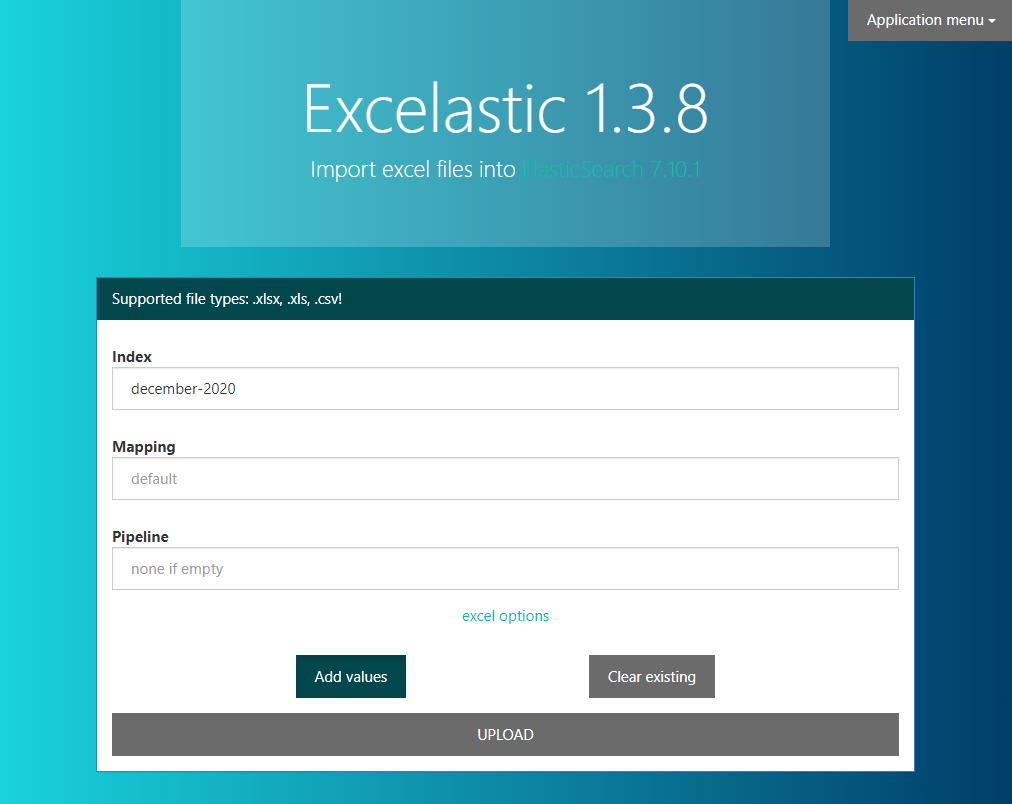Parses XLSX files into ElasticSearch using column titles from a specified row combined with data in columns on each row. May be used with Kibana or other visualization applications, example result using a transaction log in excel format image. The application comes with a web-interface to simplify uploading.
- import excel (.xlsx/.xls) files into elasticsearch.
- easy to use web interface, with support for commandline imports too.
- csv files can be converted to .xlsx using office and then imported.
- clear the index before importing, or append to existing index.
- basic authentication when uploading from the application to elasticsearch.
- support for importing to TLS enabled elasticsearch servers.
- supports concurrent parsing of excel files and importing for better performance.
- parses the whole file before starting the import - to make sure your index is not left in an undesired state.
The application requires ElasticSearch as its output.
-
ElasticSearch (version 5+/6+) should not require any additional configuration or installation, just download and run from Elastic.
-
Grab the latest .jar file from releases.
Tested with ElasticSearch 5.6.2 and 6.2.3.
Running the application, filename and index is required, to import from the terminal run:
java -Xmx2g -jar excelastic-1.2.7.jar <fileName> <indexName> --mapping mappingName --clear
If running with --clear, then the existing index will be cleared before the import starts.
To run with the web interface, run the following in your terminal:
java -Xmx2g -jar excelastic-1.2.7.jar
When the application successfully connects to the ElasticSearch server, the browser will automatically open a new tab.
If any connection errors occur check that the ElasticSearch listen port matches with the elastic_port in the configuration file. Make sure that ElasticSearch is running by directing your browser at localhost:9200.
Compiling a new fatjar and run tests,
mvn clean package
├── configuration.json
The configuration file is placed in the same directory as the jar. An example of the configuration:
{
"web_port": 0, // the port the web interface listens on
"elastic_port": 9200, // the port elasticsearch listens on
"elastic_host": "localhost", // address to elasticsearch
"elastic_tls": false, // set to true to use tls when indexing
"authentication": false, // sends an "Authentication" header if true.
"basic": "username:password" // if authentication is true this is used as basic authentication.
}
If no configuration file is present the values in the above example will be used. Note that the comments cannot be included in the configuration file.
If no configuration file is present a new configuration file will be created using the default values listed here.
If you want to contribute to this project, open an issue or pull request. ::
In the 1.2.7 release we have cleaned up the code and added even more javadoc in order to promote contributions! 😲
Thanks to JetBrains for providing free open source licenses!

